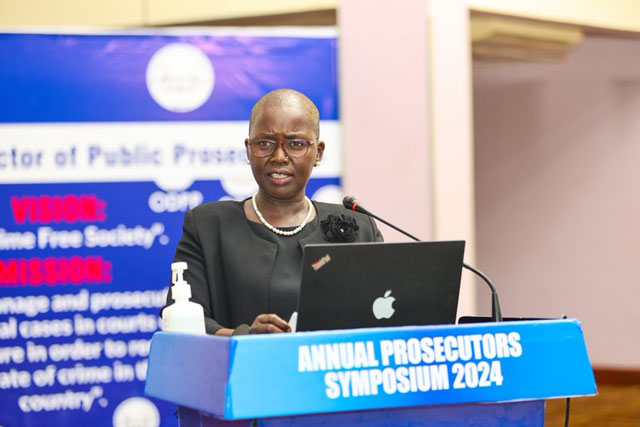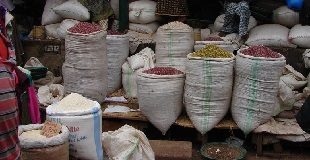
Kampala, Uganda | THE INDEPENDENT | Uganda ranks 7th in Africa for the highest number of cases related to Organized Crimes, the Director of Public Prosecutions Jane Frances Abodo has revealed.
These crimes, committed for financial gain, encompass activities such as money laundering, drug trafficking, smuggling of migrants, human trafficking, fraud, extortion, counterfeiting, contraband, asset misappropriation, armed robbery, and more.
Addressing the audience at the three-day Annual Prosecutors Symposium 2024 in Kampala, Abodo emphasized the need to strengthen prosecution capacity to combat both organized and emerging crimes.
She highlighted the dynamic nature of crime and the importance of exploring timely questions regarding prosecution mandates and accountability mechanisms.
The symposium, themed “Strengthening Capacity for Prosecution to Counter Organized and Emerging Crimes,” provides a platform to discuss the current and future roles of the Office of the DPP.
Abodo noted Uganda’s geographical location with porous borders, which creates opportunities for organized crime to thrive, making it a haven for various types of crime, including cross-border cases.
Assistant Director of Public Prosecutions Lino Anguzu outlined challenges to prosecuting organized crimes, including porous borders, evolving technology, inadequate investigations, prosecutorial capacity, involvement of high-profile individuals, and limited domestic and international cooperation.
Sharon Nyambe, Country Head of the United Nations Office on Drugs and Crime, highlighted internal issues within Uganda, such as child trafficking for sex work and forced begging, recruitment of youth into armed conflict in neighboring countries, and fraudulent recruitment for employment abroad.
She also pointed out Uganda’s role as a hub for arms trafficking across East, Central, and West Africa, and the challenges posed by counterfeit goods and environmental crimes.
“The porous borders and limited capacity to monitor smuggling further exacerbates the problem in addition, the lack of intellectual property rights legislation feeds a vast black market for smuggled and counterfeit goods,” said Nyambe.
She said that when they look at crimes against the environment, Uganda remains the key source of timber and charcoal destined for Kenya. “It is important to highlight that illegal timber or timber trade results in loss of forest cover and undermined tax collection while wildlife traffickers, on the other hand, are known to conceal contraband destined for other countries and markets,” she added.
Nyambe emphasized the importance of developing a national strategy against organized crime, including threat analysis, policy development, and capacity-building initiatives.
This strategy aims to enhance coordination among law enforcement agencies, government departments, and other stakeholders, facilitating information sharing, resource pooling, and effective implementation of countermeasures against organized crime.
****
URN
 The Independent Uganda: You get the Truth we Pay the Price
The Independent Uganda: You get the Truth we Pay the Price


